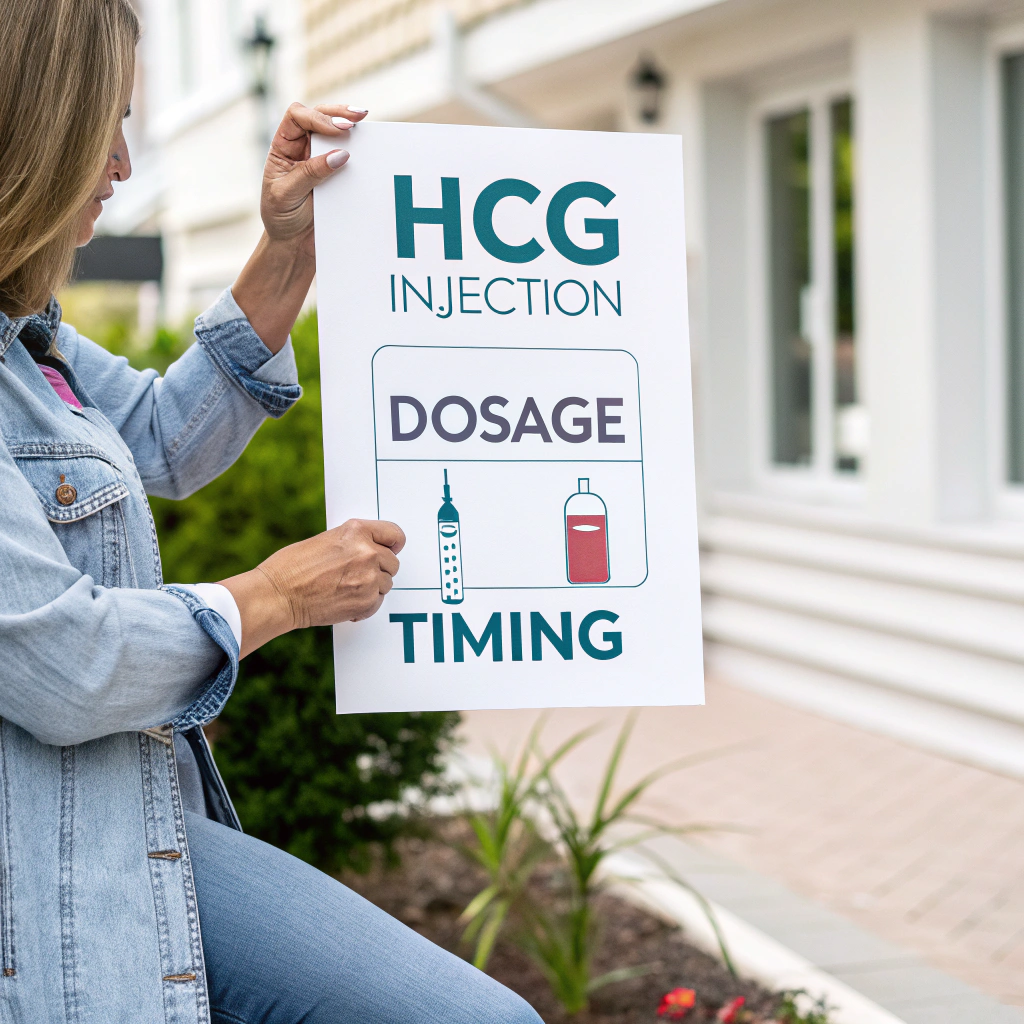Understanding HCG Injection Basics
Human Chorionic Gonadotropin (HCG) injections require precise dosage and timing for optimal results. The correct administration of HCG depends on several factors, including the medical condition being treated and individual patient characteristics.
Standard HCG Dosage Guidelines
HCG injection doses vary based on specific medical purposes. For fertility treatment, typical doses range from 5,000 to 10,000 IU. Weight management protocols often use smaller doses, between 125 to 200 IU daily. Male hormone therapy might require 500 to 4,000 IU administered two to three times weekly.
Timing Your HCG Injections
The timing of HCG injections plays a crucial role in treatment success. Morning injections are often recommended for consistent hormone levels. Fertility treatments require specific timing coordinated with ovulation cycles. Weight management protocols typically involve daily morning doses before breakfast.
Administration Methods and Storage
HCG comes in powder form requiring reconstitution with sterile water. The mixture needs refrigeration between 36-46°F (2-8°C). Proper storage ensures medication stability and effectiveness. Clean injection sites and sterile equipment are essential for safe administration.
Medical Supervision Requirements
HCG treatment requires professional medical oversight. Regular monitoring helps adjust dosages and prevents potential complications. Blood tests track hormone levels and treatment progress. Healthcare providers can modify protocols based on individual responses.
Common Side Effects and Management
Understanding potential side effects helps patients prepare for treatment. Common reactions include injection site soreness, headaches, and mood changes. Severe side effects require immediate medical attention. Proper dosing and timing minimize adverse reactions.
Duration of HCG Treatment
Treatment length varies by medical condition. Fertility protocols might last several weeks. Weight management programs typically run for 3-6 weeks. Hormone replacement therapy could extend several months. Medical supervision determines appropriate treatment duration.
Monitoring Treatment Progress
Regular assessment ensures treatment effectiveness. Physical examinations and blood work track progress. Dosage adjustments optimize results. Documentation of side effects and responses guides treatment modifications.
Special Considerations for Different Patient Groups
Age, gender, and medical history influence HCG protocols. Women undergoing fertility treatment need specialized timing. Men receiving hormone therapy require different dosing schedules. Pre-existing conditions may affect treatment approaches.
Safety Protocols and Precautions
Safe injection practices prevent complications. Proper needle disposal maintains safety. Regular medical check-ups monitor treatment effects. Understanding warning signs helps prevent serious issues.
Record Keeping and Documentation
Maintaining detailed treatment records supports optimal outcomes. Track injection times, doses, and reactions. Document physical changes and side effects. Share information with healthcare providers regularly.
Treatment Success Factors
Following prescribed protocols improves success rates. Consistent timing maintains hormone levels. Proper storage preserves medication quality. Regular communication with healthcare providers ensures appropriate care.


